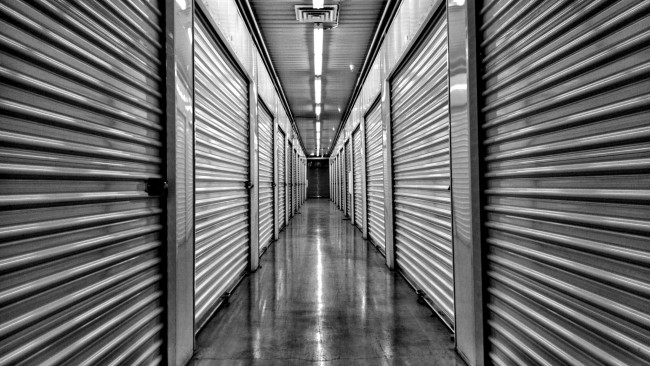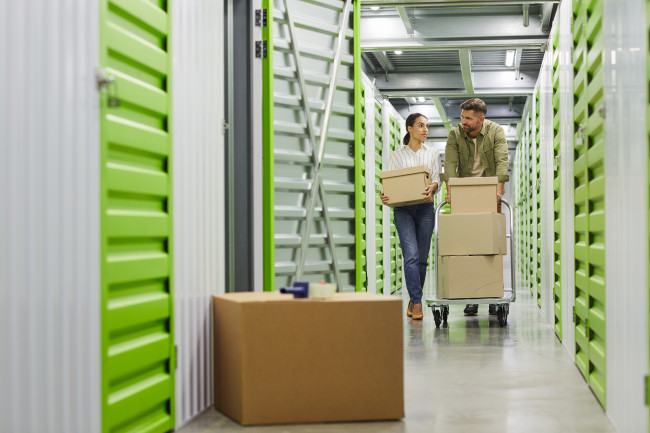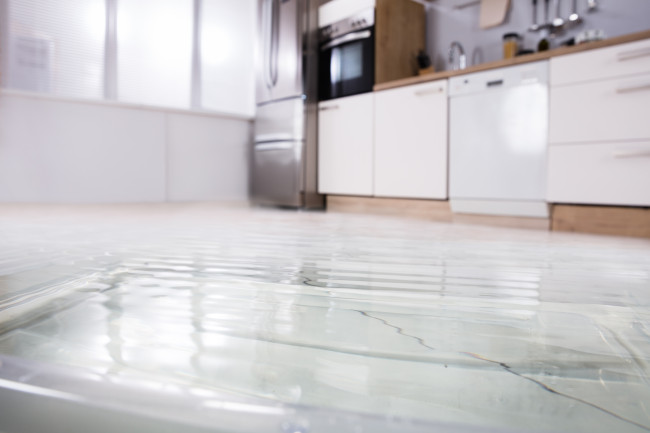How do I flood-proof my apartment’s basement storage space?

Use waterproof plastic bins and elevate as much as you can off the floor.
iStock
I live in a rental building with separate storage spaces for each resident in the basement. How can I protect my stuff from water damage caused by flooding?
Having basement storage in your building is a nice perk, considering the size of most New York City apartments. However, as Hurricane Ida and Tropical Storm Henri proved, basement flooding is happening more frequently and protecting your items in storage is essential.
When it comes to protecting your personal belongings, it’s your responsibility, says Arik Lifshitz, CEO of DSA Property Group, who has several buildings with basement storage spaces. A landlord’s duty is to try to flood-proof the actual basement to prevent damage in the first place, and fix the source of the damage if it happens, he says.
Lifshitz says his company has some buildings in low-lying areas, and basement flooding is “part of life” in those neighborhoods, especially in extreme situations like Hurricane Ida. Keeping basements dry is getting harder in these areas, he says. So you should be especially careful if you live in a flood zone and keep anything important in the basement. (The city has a tool to help find your flood zone.)
[Editor's Note: Realty Bites tackles your NYC rental questions. Have a query for our experts? Drop us an email. We respect all requests for anonymity.]
So how else can you protect your stuff? Your first step is figuring out what should be stored in the basement. Besides flooding, moisture and humidity in basements can damage porous materials like fabrics, paper, and wood, leading to mold and mildew, says Lisa Zaslow, a professional organizer and founder of Gotham Organizers.
You should also avoid storing electronics, valuable artwork, fine furniture, and cherished mementos and photos in the basement, Zaslow says. You should find a drier space to store bedding, pillows, and clothes.
Once you’ve decided what to store in the basement, you should use waterproof, durable plastic bins, Zaslow says. Sustainable, natural materials might be the trend in home organizing but it won’t protect your items from water damage well, she says.
Zaslow recommends the Clear Weathertight Totes from The Container Store, which cost $13 to $65, depending on the size. You should also keep an inventory of what you’re keeping in these bins—especially if you need to clear out important items before a bad storm. Extra-large Ziploc bags, $20 for six on Amazon, are a good waterproof solution for larger items, she says.
Once you put your things in bags and containers, try your best to elevate everything off the ground. Shelving is one way to do this—rust-resistant or plastic shelving is better than wood, Zaslow says. You can also use pallets, bricks, or cinder blocks to keep your items off the ground. Hooks, peg boards, and wall racks are a good way to keep tools or sports equipment off the floor.
One last tip: Consider buying an electronic water monitor, like this one from Amazon for $50, which will alert you via an alert or message on your smart device if flooding is detected. And don’t forget to occasionally check in on your stuff—especially during a storm.
You Might Also Like



























